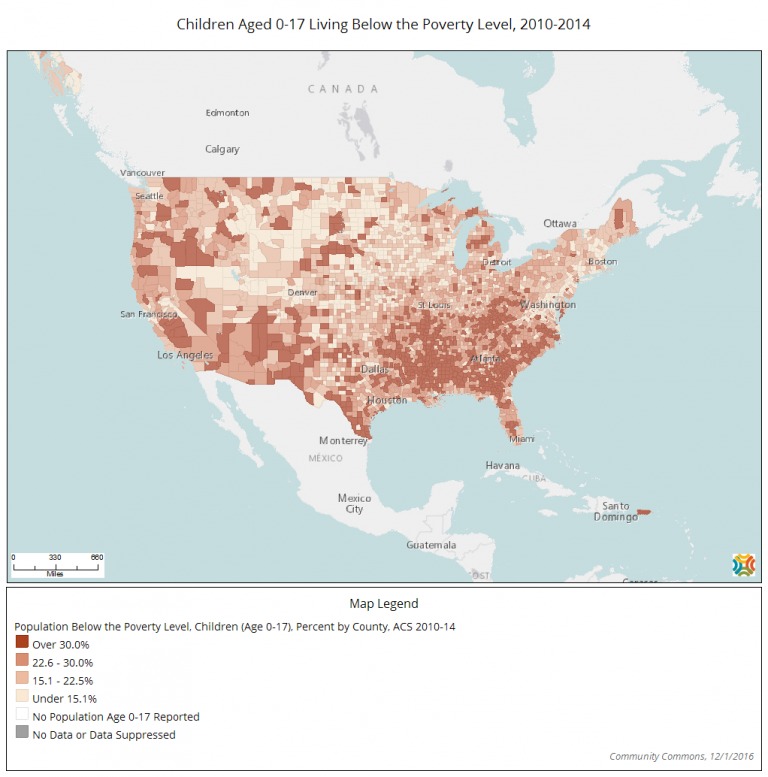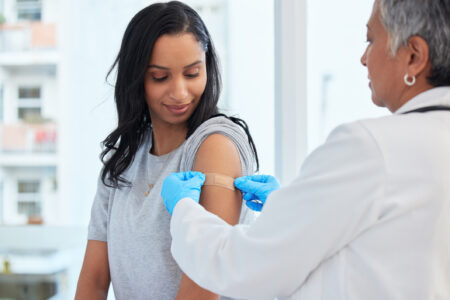
Share On Social!
For millions, childhood poverty can have lifelong consequences that affect future health, education, financial earnings, employment, and more. According to a new report, one in five American children are classified as being “poor” and near two in five will be poor for at least one year before turning 18. These figures translate into nearly 29 million children.
According to the Pew Research Center, there were 55.3 million Hispanics in the United States in 2014, making up 17.3% of the overall population in the U.S. Of this rapidly growing number, 23.5% were classified as living in poverty.
The poverty numbers offer some stark and harsh realities. For infants born into poverty, nearly 50% will grow up to be “persistently” poor, spending at least half of their childhoods in poverty. Growing up in poverty has been linked to toxic stress, a condition that has been shown to harm children’s brain development, lower IQ scores, and greatly reduce academic performance and achievement.
In order to reduce health disparities, it is critical to address inequities in programs, practices, and policies. Join our site, connect with others, and get involved.
According to the Urban Institute, children who experience poverty between birth and the age of 2 are 30% less likely to graduate from high school. This is significantly higher than children who experience poverty at a later age.
Breaking the cycle of poverty is difficult, but not impossible. Strategies to helping facilitate this include reaching poor children as early as possible, perhaps as soon as they are born. Social workers at hospitals can connect newborn parents with programs to help them avoid the “poverty trap.” It is also important to get children involved in education as early as possible.
Read more about this story here.
Read stories similar to this one:
- What does it cost to raise a child? A new report gives the answer. #SaludAmerica #HealthEquity salud.to/2jECTth
- The #ACA has helped millions of Americans with pre-existing conditions #GetCovered. #SaludAmerica #HealthEquity salud.to/2j1wifi
Explore More:
Healthy Families & SchoolsBy The Numbers
142
Percent
Expected rise in Latino cancer cases in coming years



